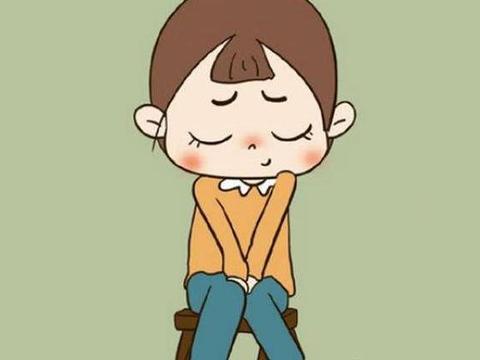Leg-pinching Behaviour Raises Parental Concerns: Experts' Analysis of Sexual Self-entertainment in Infants and Toddlers
The article addresses a parent's concern about their daughter's leg-pinching behavior. Infant and toddler sexual self-entertainment is normal as they explore their bodies. Parents should avoid mislabeling it as a problem, provide proper guidance like spending time, offering diverse activities, and not over-blaming. Promoting parent-child time, providing recreations, and teaching correct sexual concepts can help children outgrow such behaviors and grow healthily and happily.
Recently, a parent reported to us that her daughter has been fond of pinching her legs since she was just over one year old, and she would even sweat as a result in the hot summer, and said that this made her comfortable and sleepy. The parents were confused and worried about this and wondered if it was a sign of psychological problems. We have consulted experts in response to this issue. The following analysis is about the phenomenon of infancy and early childhood sexual self-entertainment.

I. The Performance of Sexual Self-indulgence in Infants and Toddlers
Infants and toddlers will explore the world by touching their own bodies in the process of growing up, which is a way for them to get to know their own bodies. In this process, they may find that touching certain parts of the body brings a sense of pleasure, which leads to some sexual self-entertainment behaviours, such as pinching the legs and stroking the genitals. These behaviours are normal physiological phenomena in infancy and early childhood, so parents need not worry too much.
II. How to Correctly Look at the Sexual Recreational Behaviour of Infants and Toddlers
1. Don't Label the Child as Having Psychological Problems or Illnesses.
Sexual recreational behaviour of infants and toddlers is a way for them to explore their own bodies and has nothing to do with psychological problems or diseases. Parents should keep a calm mind and not be overly nervous or anxious.
2. Appropriate Guidance in Daily Life.
Parents can spend more time with their children in their daily life and guide them to participate in various interesting activities to make them feel more happy. At the same time, parents should also pay attention to observe their children's behaviours. If they find that their children engage in sexual recreational behaviours too frequently, they can appropriately divert their children's attention and guide them to focus on other things.
3. Avoid Over-blaming the Child.
If children are rudely interrupted or reprimanded by their parents during sexual self-entertainment, it may leave a bad impression in children's minds and affect their perception and attitude towards sex. Therefore, parents should remain calm and patient when coping with their children's sexual recreational behaviour and avoid over-blaming their children.
III. How to Help Children Get Rid of Sexual Recreational Behaviours
1. Promote Parent-child Companionship.
Parents should spend more time with their children to participate in various activities, so that children can feel the warmth and care of the family, which will help to reduce the children's sense of loneliness and boredom, thus reducing the possibility of them seeking comfort through sexual recreational behaviour.
2. Provide a Variety of Recreational Activities.
Providing children with a variety of recreational activities, such as reading, drawing, music and sports, can help distract their attention and enable them to find more fun in life.
3. Guide Children to Develop Correct Sexual Concepts.
As children grow older, parents can popularise some basic sexual knowledge for them at the right time, and help them establish correct sexual concepts and values. This will help children to rationally view their sexual self-entertainment and gradually learn to control their behaviour.
IV. Summary and Recommendations
Infants and young children's sexual recreational behaviour is a normal phenomenon in their growth process, and parents do not have to worry too much about it. The key lies in how to guide and educate children correctly. Accompanying children to participate in various interesting activities in daily life, providing rich entertainment activities and popularising basic sexual knowledge for them at the right time are all effective methods. At the same time, we should also be careful not to scold or roughly interrupt the child's sexual self-recreational behaviour so as not to leave a bad impression that will affect their future sexual perception and attitude. Through scientific and reasonable guidance and education, we believe that children can grow up healthily and happily.
Hot Articles

Break Barriers to Homeownership: No Down Payment, No-Income Verification Mortgages Available Now!

Unlocking Affordable 1-3 Bedroom Apartment Options

Secure Your American Education: 90% More Scholarships Available – Apply for Free Today!

El análisis de datos en la era digital: cómo transforma nuestra vida y decisiones